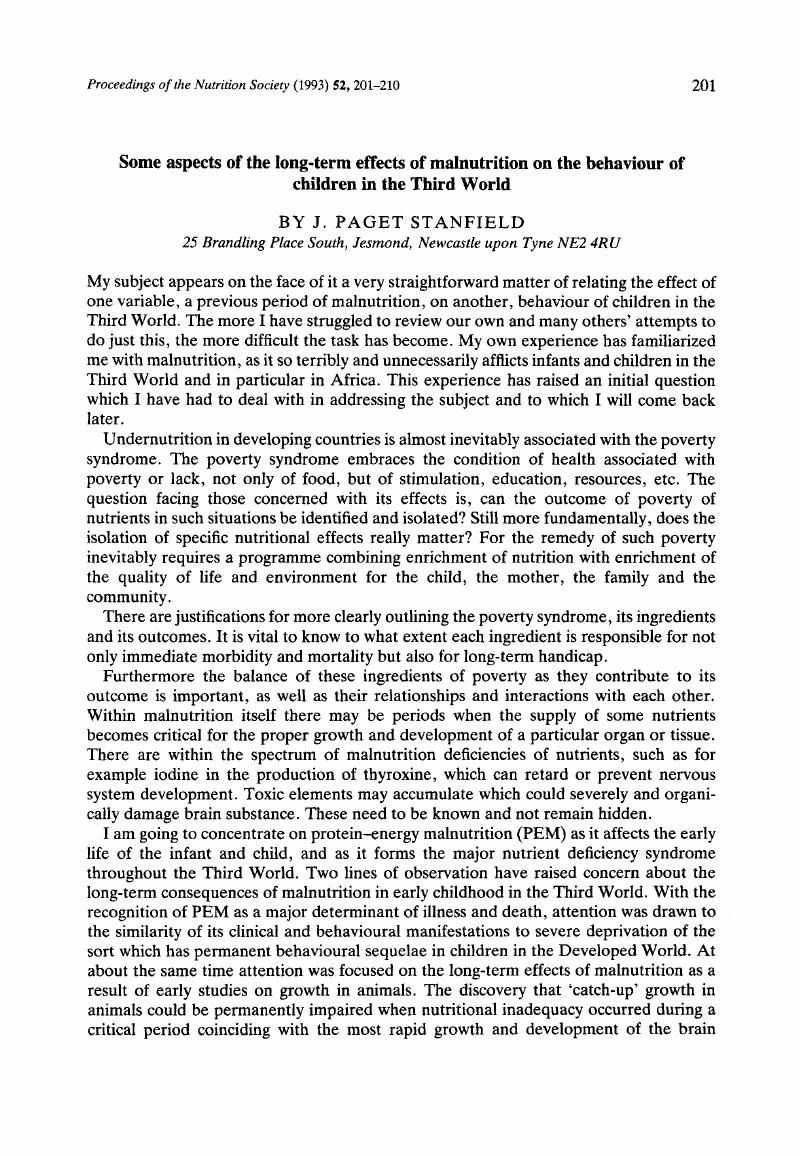Crossref Citations
This article has been cited by the following publications. This list is generated based on data provided by Crossref.
BÉNÉFICE, E.
and
BÂ, A.
1994.
Differences in motor performances of children attending or not attending nursery school in Sénégal.
Child: Care, Health and Development,
Vol. 20,
Issue. 6,
p.
361.
Bénéfice, E
Fouéré, T
Malina, R M
and
Beunen, G
1996.
Anthropometric and motor characteristics of Senegalese with different nutritional histories.
Child: Care, Health and Development,
Vol. 22,
Issue. 3,
p.
151.
E. BENEFICE, T. FOUERE, R. M. MALIN
1999.
Early nutritional history and motor performance of Senegalese children, 4-6 years of age.
Annals of Human Biology,
Vol. 26,
Issue. 5,
p.
443.
le Roux, Ingrid M
le Roux, Karl
Comulada, W Scott
Greco, Erin M
Desmond, Katherine A
Mbewu, Nokwanele
and
Rotheram-Borus, Mary Jane
2010.
Home visits by neighborhood Mentor Mothers provide timely recovery from childhood malnutrition in South Africa: results from a randomized controlled trial.
Nutrition Journal,
Vol. 9,
Issue. 1,
Chowdhury, Sutanu Dutta
Wrotniak, Brian H.
and
Ghosh, Tusharkanti
2010.
Nutritional and socioeconomic factors in motor development of Santal children of the Purulia district, India.
Early Human Development,
Vol. 86,
Issue. 12,
p.
779.
le Roux, Ingrid M.
le Roux, Karl
Mbeutu, Kwanie
Comulada, W. Scott
Desmond, Katherine A.
and
Rotheram-Borus, Mary Jane
2011.
A randomized controlled trial of home visits by neighborhood mentor mothers to improve children's nutrition in South Africa.
Vulnerable Children and Youth Studies,
Vol. 6,
Issue. 2,
p.
91.
Dutta Chowdhury, Sutanu
and
Ghosh, Tusharkanti
2011.
Nutritional and socioeconomic status in cognitive development of Santal children of Purulia district, India.
Annals of Human Biology,
Vol. 38,
Issue. 2,
p.
188.
Huber, Reinhard C.
Kolb, Andreas F.
Lillico, Simon
Carlisle, Ailsa
Sandøe, Peter
Sørensen, Dorte B.
Remuge, Liliana
Whitelaw, Bruce C. A.
and
Olsson, Anna I. S.
2013.
Behaviour of postnatally growth-impaired mice during malnutrition and after partial weight recovery.
Nutritional Neuroscience,
Vol. 16,
Issue. 3,
p.
125.
Ghosh, Satabdi
Chowdhury, Sutanu Dutta
Chandra, Ananga Mohan
and
Ghosh, Tusharkanti
2013.
A study on the influence of occupation on development of motor activities in children.
International Journal of Adolescence and Youth,
Vol. 18,
Issue. 1,
p.
23.
Cortés-Moreno, Assol
2018.
Caregiving and Home Care.
Galler, Janina R
Bringas-Vega, Maria L
Tang, Qin
Rabinowitz, Arielle G
Musa, Kamarul Imran
Chai, Wen Jia
Omar, Hazim
Abdul Rahman, Muhammad Riddha
Abd Hamid, Aini Ismafairus
Abdullah, Jafri Malin
and
Valdés-Sosa, Pedro A
2021.
Neurodevelopmental effects of childhood malnutrition: A neuroimaging perspective.
NeuroImage,
Vol. 231,
Issue. ,
p.
117828.



